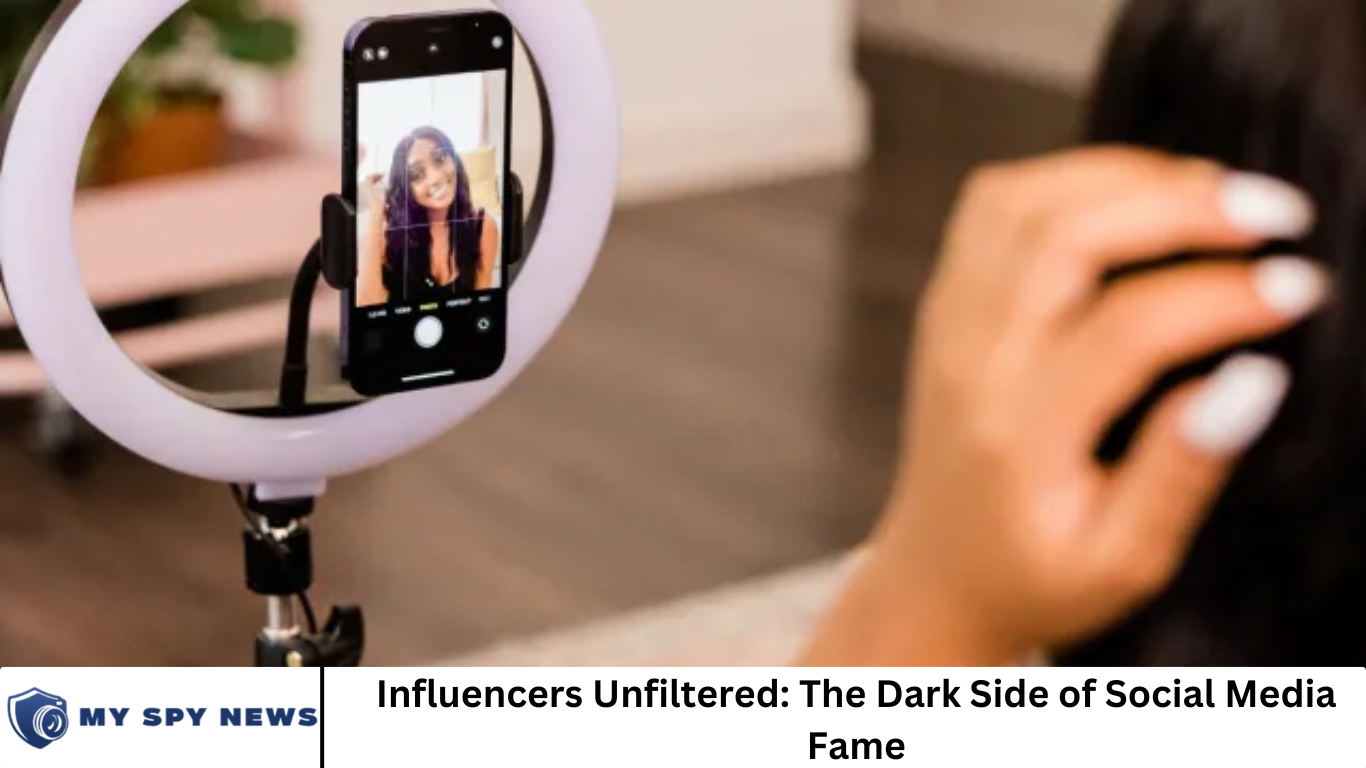Hi everyone! How are you all doing? Welcome to myspynews.com Social media has revolutionized the way we interact, consume content, and even perceive success. Among the biggest beneficiaries of this digital transformation are influencers—individuals who amass large followings by sharing curated content about their lives, expertise, or interests. From beauty bloggers and fitness gurus to travel vloggers and tech reviewers, influencers have become modern-day celebrities. However, behind the polished Instagram posts and engaging TikTok videos lies a darker reality that many fail to see. This article explores the often-overlooked challenges and consequences of social media fame, unveiling the unfiltered truth about influencers.
The Pressure to Maintain a Perfect Image
One of the greatest burdens influencers face is the pressure to maintain an idealized image. Followers expect influencers to be flawless, successful, and always entertaining. This unrealistic standard can lead influencers to heavily edit their photos, fabricate aspects of their lifestyles, and project an unattainable image of perfection. This constant need for validation can take a toll on their mental health, leading to anxiety, depression, and even self-destructive behaviors.
Mental Health Struggles
The mental health crisis among influencers is a growing concern. Many influencers report feeling immense stress from the need to constantly produce content, stay relevant, and engage with their audience. The fear of losing followers, receiving hate comments, or facing online harassment exacerbates these struggles. Studies have shown that prolonged exposure to social media can lead to increased levels of stress, imposter syndrome, and burnout. Some influencers even develop body image issues due to the unrealistic beauty standards they feel compelled to uphold.
The Financial Instability of Influencing
While social media fame can be lucrative, it is far from stable. Many influencers struggle with unpredictable income streams as brand partnerships, sponsorships, and ad revenues fluctuate. Unlike traditional jobs with steady paychecks, influencing often depends on engagement rates, which can be unpredictable due to constantly changing algorithms. Some influencers resort to desperate measures, such as buying followers or engaging in deceptive advertising, to maintain their online presence and income.
Exploitation and Manipulation
The influencer industry is rife with exploitation. Some talent agencies and brand sponsors take advantage of aspiring influencers by offering unfair contracts, underpaying them, or withholding payments. Additionally, many influencers feel pressured to promote products they do not believe in, leading to ethical dilemmas and a loss of credibility. Young influencers, in particular, are vulnerable to manipulation, often signing exploitative deals without understanding the long-term consequences.
Online Harassment and Cancel Culture
Influencers are constantly under public scrutiny, making them prime targets for online harassment and cyberbullying. Negative comments, hate messages, and even threats can take a severe toll on their well-being. Additionally, the rise of cancel culture has made it easy for influencers to lose their careers over past mistakes, controversial statements, or even misunderstandings. While accountability is important, the mob mentality of cancel culture often disregards growth and redemption, leaving influencers struggling to recover their reputations.
The Impact on Followers
While influencers experience the negative effects of social media fame firsthand, their followers are not immune to its consequences. Many young audiences compare themselves to influencers’ seemingly perfect lives, leading to self-esteem issues, unrealistic expectations, and even financial strain from trying to keep up with trends. Social media has also contributed to a culture of materialism, where success is measured by luxury possessions rather than personal achievements.
Coping Strategies and Ethical Influencing
Despite these challenges, influencers can take steps to protect their mental health and ethical integrity. Setting boundaries, taking breaks from social media, and seeking professional help when needed can help mitigate the negative effects of online fame. Authenticity and transparency are also key in maintaining trust with audiences. Influencers who openly discuss their struggles, set realistic expectations, and promote positive values can create a healthier social media environment for themselves and their followers.
Frequently Asked Question
Is being an influencer a full-time career?
Yes, but it is not always sustainable. Influencers can earn substantial income through brand deals, sponsorships, and advertisements, but financial stability is never guaranteed.
How do influencers deal with negative comments and online hate?
Some use content moderation tools, block harmful users, or take social media breaks to protect their mental health. Many also rely on supportive communities to navigate online negativity.
Are all influencers financially successful?
No. While top influencers earn millions, many struggle to make a living. The competition is fierce, and algorithms can impact engagement rates and income.
Why do some influencers fake their lifestyles?
The pressure to maintain a luxurious or idealized image can lead influencers to exaggerate or fabricate aspects of their lives to attract more followers and brand deals.
What happens when influencers get canceled?
Depending on the severity of the controversy, influencers may lose brand deals, followers, and credibility. Some recover by addressing their mistakes and rebuilding their reputation, while others fade into obscurity.
How can followers support influencers ethically?
Engaging with content genuinely, avoiding unrealistic expectations, and supporting influencers who promote transparency and authenticity can foster a healthier influencer culture.
What are the signs of influencer burnout?
Symptoms include constant stress, loss of creativity, decreased engagement with followers, anxiety, and the need to take extended breaks from social media.
Conclusion
The world of social media influencing is not as glamorous as it appears. Beneath the filtered posts and viral trends lie significant struggles, including mental health issues, financial instability, exploitation, and online harassment. As audiences, we must be mindful of the pressures influencers face and consume content with a critical eye. Influencers, on the other hand, should prioritize authenticity, ethical partnerships, and self-care to create a sustainable career. Only by addressing these hidden challenges can we build a more responsible and healthy digital culture.


